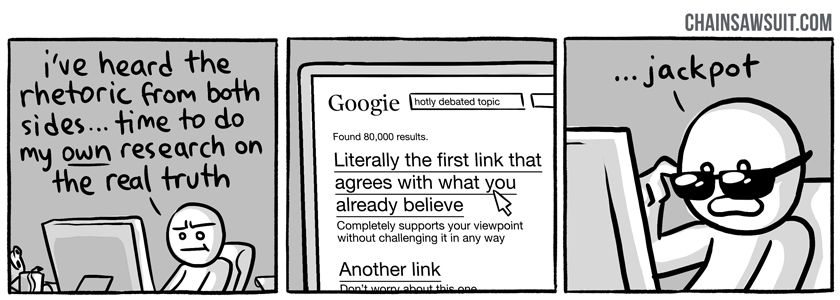Curiosity > Conviction

Nothing breakthrough here, just a primer on confirmation bias.
In short, we see the world not as it is, but as we think it is or as we want it to be. This particular bias affects how we seek information, how we interpret that information, and how we remember that information.
Interestingly, one study reveals that exposing people to information that runs counter to their existing political beliefs activates parts of the brain associated with physical pain – which may explain why, at least in the US, we seem to be increasingly trapped in partisan information bubbles.
Perhaps we would be a in a much different place if everyone just cared about politics less – or if we had more boring candidates. If I am lukewarm about a politician, I will more willingly receive information that counters my perceptions of that person. But if I am deeply committed to that politician, and my belief in him/her is part of my identity, then I shut down. As the author suggests, we should “approach life with curiosity, not conviction” if we are to overcome confirmation bias – not just in politics but in everything.
